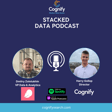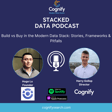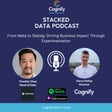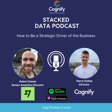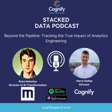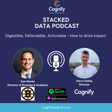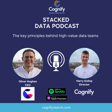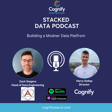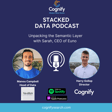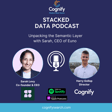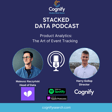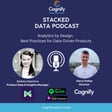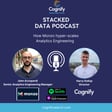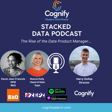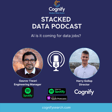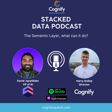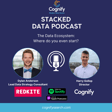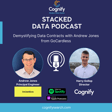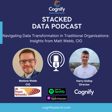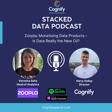
014 - The Power of Story Telling
𝐈𝐬 𝐢𝐧𝐟𝐥𝐮𝐞𝐧𝐜𝐢𝐧𝐠 𝐭𝐡𝐞 𝐦𝐨𝐬𝐭 𝐢𝐦𝐩𝐨𝐫𝐭𝐚𝐧𝐭 𝐬𝐤𝐢𝐥𝐥 𝐢𝐧 𝐝𝐚𝐭𝐚?
The ability to influence is pivotal for success in data. After all, the role of a data function is to inform business decision-making. One of the most effective ways to achieve this is through Storytelling.
Excited to share the latest episode of The Stacked Data Podcast, where I had the privilege of chatting with Phil Thirlwell, the Director of Analytics and Data Strategy at FIS. Today, we unravel the transformative power of storytelling in driving business impact and value creation.
As a leader, the ability to manage and influence C-Suite is pivotal for success.
Join us for some insightful takeaways:
🛣️ 𝐏𝐡𝐢𝐥'𝐬 𝐉𝐨𝐮𝐫𝐧𝐞𝐲 𝐢𝐧 𝐃𝐚𝐭𝐚
🌐 𝐆𝐥𝐨𝐛𝐚𝐥 𝐈𝐦𝐩𝐚𝐜𝐭 & 𝐄𝐱𝐞𝐜𝐮𝐭𝐢𝐯𝐞 𝐂𝐨𝐥𝐥𝐚𝐛𝐨𝐫𝐚𝐭𝐢𝐨𝐧:
As the Head of Analytics at FIS, Phil plays a pivotal role in influencing global business strategy. We dive into the dynamics of working closely with executive teams and explore how it differs from collaborating with other stakeholders.
📈 𝐌𝐞𝐭𝐫𝐢𝐜𝐬 𝐌𝐚𝐭𝐭𝐞𝐫:
The importance of setting the right metrics and measures cannot be overstated. Phil shares his insights on the critical role metrics play in ensuring impactful data-driven decisions.
🔍 𝐌𝐞𝐞𝐭𝐢𝐧𝐠 𝐄𝐱𝐞𝐜𝐮𝐭𝐢𝐯𝐞 𝐍𝐞𝐞𝐝𝐬:
One common challenge faced by data leaders is aligning with executive requirements. Phil shares strategies on ensuring executives get what they need, not just what they want.
📢 𝐓𝐡𝐞 𝐀𝐫𝐭 𝐨𝐟 𝐒𝐭𝐨𝐫𝐲𝐭𝐞𝐥𝐥𝐢𝐧𝐠:
Discover how Phil leverages storytelling to influence stakeholders and drive business decisions. We delve into the nuances of storytelling with data products.
📈 𝐀𝐧𝐚𝐥𝐲𝐬𝐭 𝐄𝐱𝐜𝐞𝐥𝐥𝐞𝐧𝐜𝐞:
Phil reflects on the qualities that distinguish a good analyst from a great one and what it takes to rise to leadership within the realm of data.
🌐 𝐂𝐮𝐥𝐭𝐮𝐫𝐚𝐥 𝐒𝐡𝐢𝐟𝐭 𝐭𝐨 𝐃𝐚𝐭𝐚-𝐃𝐫𝐢𝐯𝐞𝐧:
With organizations striving to become "data-driven," Phil shares insights on changing the mindset of more traditional businesses stuck in their ways.
🎙️ Tune in for More 🎙️
Be sure to listen to the full episode for in-depth insights from Phil. Subscribe for more thought-provoking discussions on The Stacked Data Podcast!
